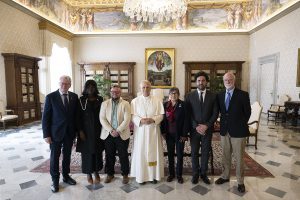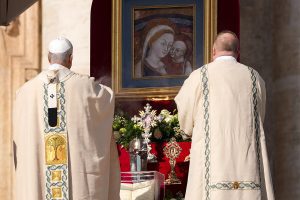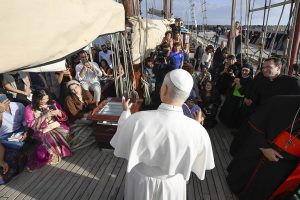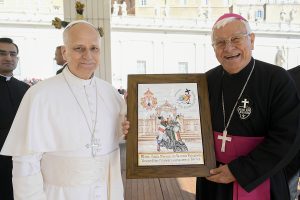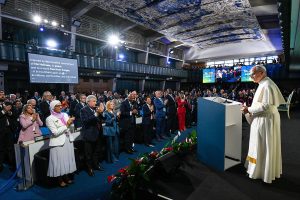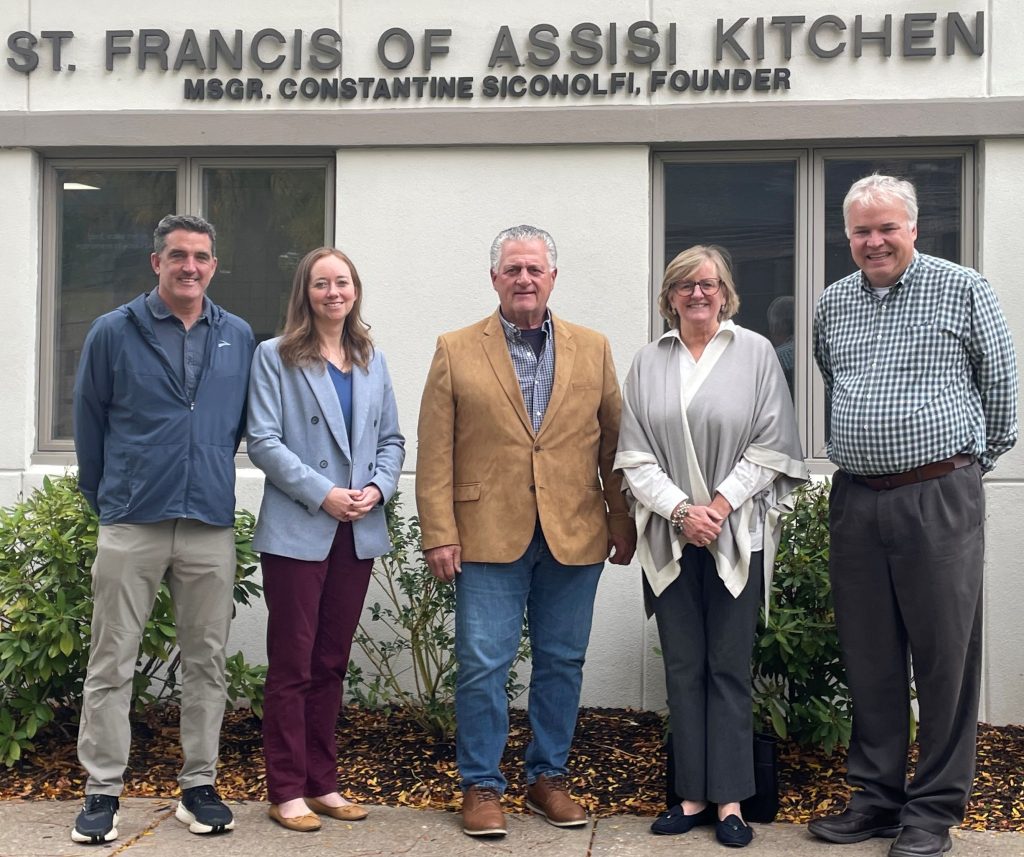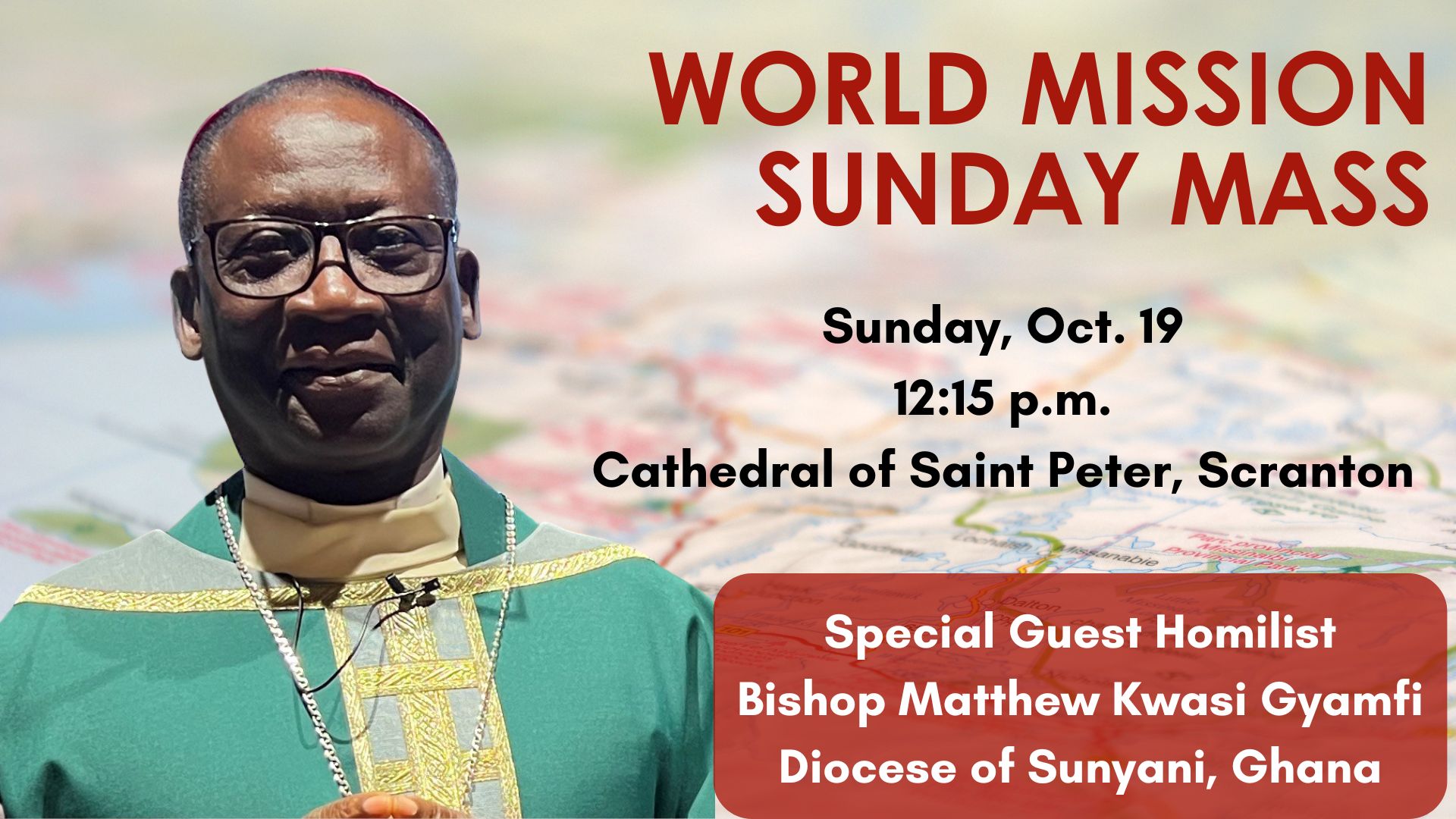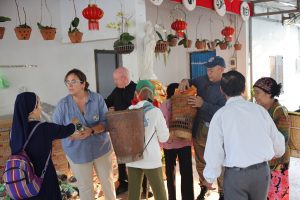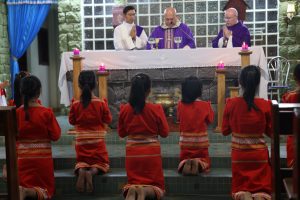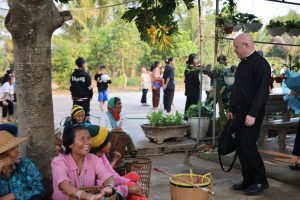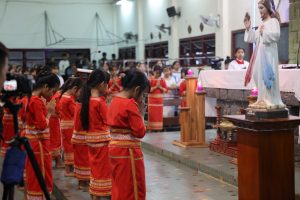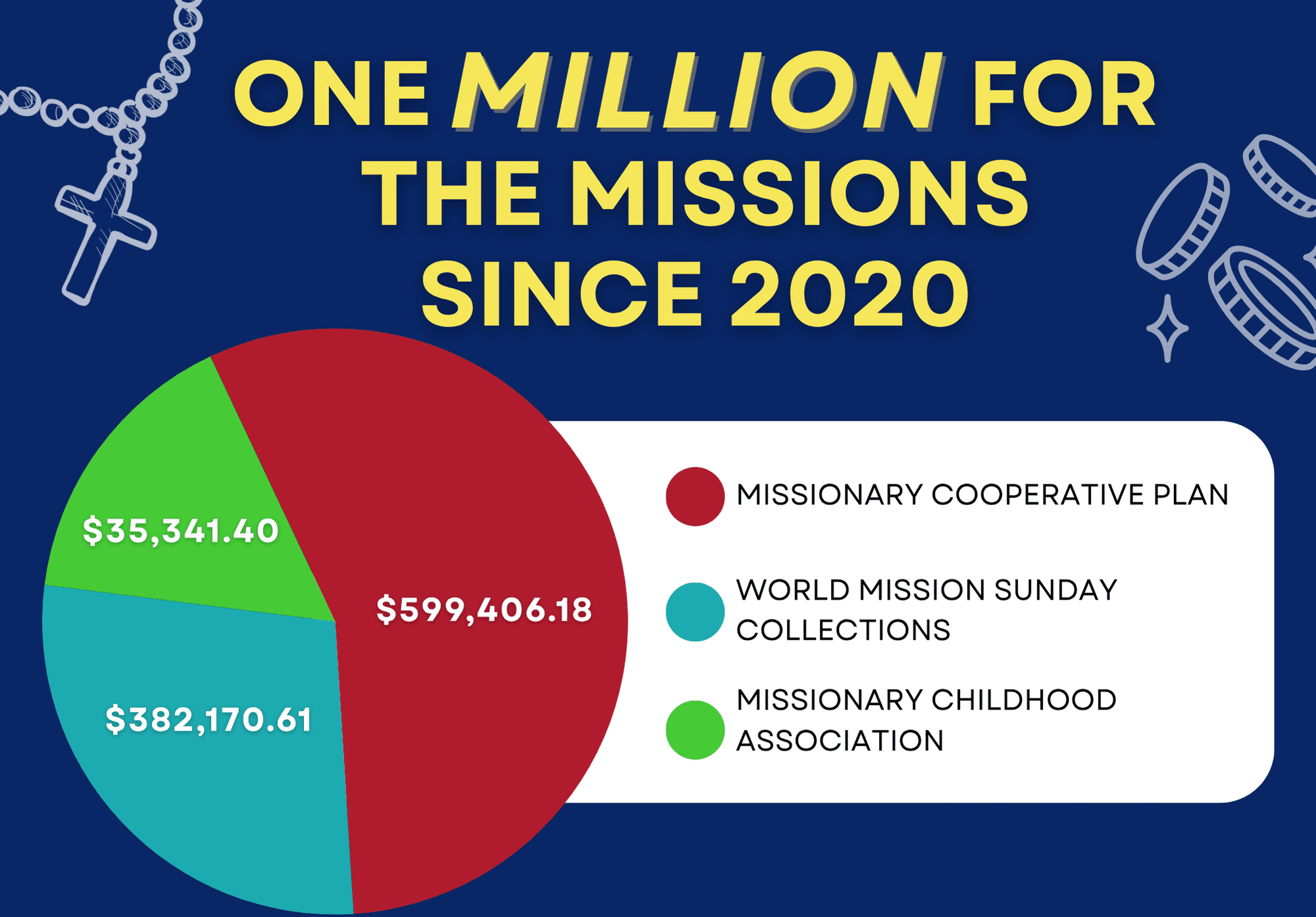(OSV News) – A new study indicates a growing number of U.S. adults see religion as gaining influence in public life – with more Americans saying religion has a positive impact on society.
In addition, an increasing number of the nation’s adults report feeling at odds with mainstream U.S. culture because of their religious beliefs.
The findings were released by Pew Research Center in an Oct. 20 report.
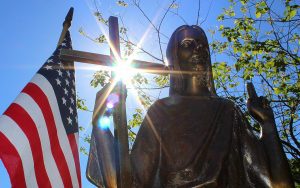
Data for the study was collected from two surveys of U.S. adults who are part of Pew’s American Trends Panel. Pew polled 9,544 panelists from Feb. 3-9 and another 8,937 from May 5-11.
While “most Americans continue to say that religion’s role in society is declining,” said Pew, “Americans’ views about religion in public life are shifting.”
The center noted that “the share of Americans expressing positive views of religion in 2024 and 2025 are up significantly from 2022 and 2019, indicating an overall shift toward more positive views about religion’s role in American life over the past five years or so.”
— A rise in religion’s influence on society, but still a minority view —
From February 2024 to February 2025, Pew found “a sharp rise” in the share of U.S. adults who hold that religion is becoming more significant in public life.
Back in February 2024, only 18% of U.S. adults — the lowest level recorded by Pew in over two decades — said religion was gaining traction in American life.
But one year later, that number had shot up to 31%, “the highest figure we’ve seen in 15 years,” said Pew in its report.
The rise has been detected “across several demographic groups,” with “gains of at least 10 percentage points among Democrats and Republicans, adults in every age category and in most large religious groups,” said Pew.
White evangelical Protestants (36%, up 20 points) and white non-evangelical Protestants (31%, up 19 points) were most likely to report gains in religion’s influence as of February 2025.
Catholics and the religiously unaffiliated (atheists, agnostics and those who list their religious affiliation as “nothing in particular”) both saw upticks of 12 points in their February 2025 responses, with 27% of Catholics and 31% of the religiously unaffiliated reporting a gain in religion’s influence.
The largest surge was among the Jewish community, which saw an increase of 23 points during the 12-month period, with 44% (up from 21% in February 2024) reporting that religion was gaining influence in U.S. society.
Muslim, Buddhist, Hindu, Indigenous and other faith communities were not separately analyzed in the report due to insufficient sample sizes, Pew communications manager Hannah Taber explained to OSV News in an email.
Republicans (32% as of February 2025) saw a greater 12-month jump in their view of religion’s influence, up 17 points from February 2024. Democrats, 30% of whom report an increase in religion’s influence, demonstrated a 10-point rise from February 2024.
The share of young adults (ages 18-29) who hold that religion has gained influence shot up 18 points, from 19% in February 2024 to 37% a year later.
At the same time, “most Americans continue to say that religion’s role in society is declining,” with 68% overall currently holding that view — although that number has decreased from 80% in 2024, said the report.
Almost three quarters of the nation’s Catholics (73%) said that religion was losing influence in U.S. society.
— Religion in society: Good or bad? —
Pew also asked survey participants to evaluate the shift, with researchers combining the questions to determine whether respondents ultimately viewed religion’s influence in society as positive or negative.
More than half (59%) of the nation’s adults viewed religion’s influence on American life as positive — either by stating with approval that religion’s influence is growing, or lamenting a decline in religion’s impact.
In contrast, 20% responded negatively, approving the waning of religious influence or expressing concern at its growth.
Another 21% provided “neutral or unclear views,” said Pew.
White evangelical Protestants (92%) were by far the most likely to express positive views, followed by Black Protestants (75%), Catholics (71%) and white non-evangelical Protestants (67%).
Responses among Jewish survey participants were more evenly split, with 36% positive, 38% negative and 26% neutral or unclear.
Pew found that “Republicans and Republican-leaning independents are about twice as likely as Democrats and Democratic leaners to have a positive view of religion,” at 78% vs. 40%.
In addition, “older Americans are more likely than young Americans to express a positive view of religion’s influence in public life,” Pew reported. For example, 71% of adults ages 65 and older express a positive view of religion, compared with 46% of 18- to 29-year-olds.
On balance, said Pew, “the share of Americans expressing positive views of religion in 2024 and 2025 are up significantly from 2022 and 2019, indicating an overall shift toward more positive views about religion’s role in American life over the past five years or so.”
— Christianity and American life —
In its May 2025 survey, Pew included a specific question about Christianity’s influence on American life. Just under half of the respondents (48%) said Christianity’s influence is decreasing, with 27% reporting an increase and 24% replying there has been no real change.
Pew clarified that these results “are not comparable to the question about religion’s changing influence,” since the question structure and response options differed.
At the same time, said Pew, “general patterns on these two questions are similar,” and “a larger share of Americans now say Christianity’s influence on American life is increasing (27%) than said this in 2020 (19%).”
Yet, said Pew, “it is still a minority view.”
— Religion and culture clash —
Notably, Pew reported that for the first time since 2020, “a majority of U.S. adults (58%) say they feel at least some conflict” between their religious beliefs and the nation’s mainstream culture” — up 10 points from February 2024 alone, and up 16 points from February 2020.
“This view is held by roughly half or more of Americans in both political parties and all age groups — and in every religious group analyzed, with the exception of those who say their religion is ‘nothing in particular,'” said Pew.
White evangelicals (80%) are “by far” the most likely to report some level of culture clash, with slightly more than half of Catholics (55%) indicating “some” (42%) or “a great deal” (13%) of tension between their beliefs and the culture, said Pew.
Republican and Republican-leaning respondents (62%) were more likely than their Democratic counterparts (55%) to say they feel such conflict.
Responses were more even among age groups, ranging from 59% for adults ages 18-29 and age 65 and older (57%).
— Loving God, loving country —
In its May 2025 survey, Pew also assessed respondents’ views of patriotism and faith, asking them to rank the importance of that relationship as well as other traits in overall religious identity.
Among Christians, 29% said that “loving your country” was “essential” to being Christian, with 47% ranking patriotism as “important but not essential” and 24% stating it was not important.
White evangelical Protestants (30%) and Catholics (30%) tied among Christians who named patriotism as essential to their identity as Christians.
Republican and Republican-leaning survey participants (33%) were more likely than their Democratic counterparts (23%) to cite patriotism as essential to Christian identity.
Attending religious services regularly was named as essential by 28%, important but not essential by 52% and not important by 20%.
In contrast, Christians were much more likely prioritize as “essential” being honest (86%), treating people with kindness (85%), believing in God (85%) having a personal relationship with Jesus Christ (76%) and helping those in need (66%).
Being part of a community (33%) and continuing family traditions (29%) were seen as less essential, although still named as “important but not essential” by 56% and 53% respectively.
— American belief in one true religion —
Data from Pew’s May 2025 survey showed just under half (48%) of U.S. adults hold that many religions may be true.
Just over one quarter (26%) of the nation’s adults believe only one religion is true, with 18% maintaining “there is little truth in any religion” and 6% stating “there is no truth in any religion,” said Pew.
The survey also found that “clear majorities of White nonevangelical Protestants (69%) and Catholics (65%) say many religions may be true,” while “most White evangelicals (62%) say only one religion is true.”
The Catholic Church’s Second Vatican Council affirmed humankind’s innate search for God, stating in “Nostra Aetate” that the church “rejects nothing that is true and holy” in other religions while continuing to “proclaim Christ ‘the way, the truth, and the life’ (Jn 14:6), in whom men may find the fullness of religious life, in whom God has reconciled all things to Himself.”
The Vatican’s Dicastery for Interreligious Dialogue promotes “respect, mutual understanding, and collaboration between Catholics and the followers of others religious traditions,” while the church’s relations with Judaism are specifically engaged through the Commission for Religious Relations with Jews and the International Catholic-Jewish Liaison Committee, both of which are overseen by the Vatican’s Dicastery for Promoting Christian Unity.

